
Soldiers, survivors, 3 a.m. fathers—Anthony Smith looks at families in recent video-game advertising and finds a "gamer dad" who’s gamer first, dad a distant second (while gamer mom is first and always a mom).
Read more »

Soldiers, survivors, 3 a.m. fathers—Anthony Smith looks at families in recent video-game advertising and finds a "gamer dad" who’s gamer first, dad a distant second (while gamer mom is first and always a mom).
Read more »

Kyra Hunting discusses how the creative use of open-ended software can serve media scholars — yet the available research software is not yet designed for the diversity of information, multiplicity of data input types, and unique twists and turns that accompanies the study of media texts.
Read more »

Everybody knows about Kickstarter, which is considered to be world’s most popular crowdfunding platform; however, Kickstarter is only one of an estimated number of over 1,000 platforms worldwide. Patryk Galuszka and Blanka Brzozowska look at MegaTotal, a music-oriented platform implementing a significantly different model than Kickstarter.
Read more »
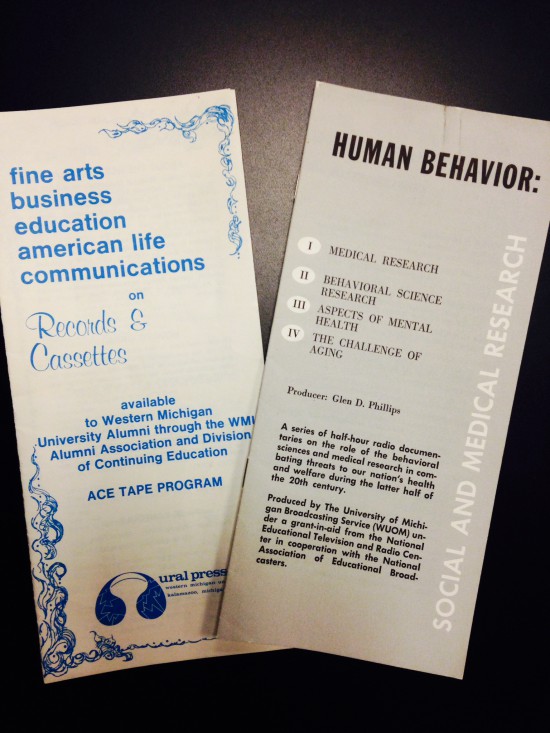
Stephanie Sapienza, Project Manager at the Maryland Institute for Technology in the Humanities (MITH), advocates for why the audio and paper materials of the National Association of Educational Broadcasters (NAEB)'s radio collection - housed at the University of Maryland and the University of Wisconsin-Madison - need to be integrated online to maximize their usefulness...
Read more »

Jennifer Jones recommends checking out Damages on Netflix in our "Late to the Party" series.
Read more »
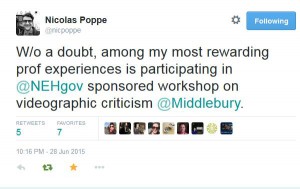
Melanie Kohnen reflects on what she learned at Middlebury College's videographic criticism workshop.
Read more »

The outdoor "maid’s room" was a common suburban feature of apartheid Johannesburg. In the 21st century many of these spaces have been reimagined as "garden cottages" and transformed into middle class assets, but traces of their segregated histories persist.
Read more »
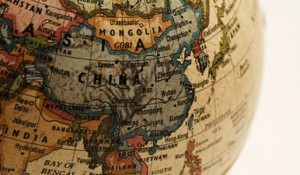
Given the complex realities of home and the persistent simplification in its imagination during what many have dubbed the "Asian Century," Yiu Fai Chow, Sonja van Wichelen, and Jeroen de Kloet want to bracket home just as we hyphenate identity.
Read more »

Richard Hewett gorges on recent Hitchcock-ography and finds it lean on original insights — beyond further evidence of Hitch’s exercise of control, even from the grave.
Read more »
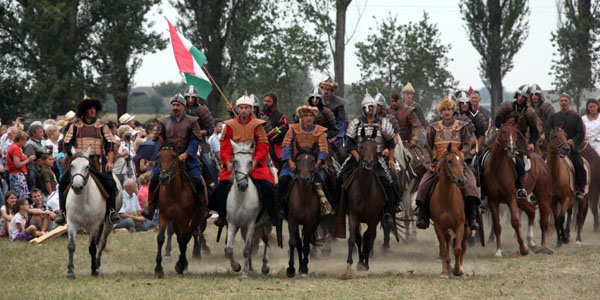
Chris Moreh explains how the need to take up the challenge posed by rapid economic growth in Asia has aided the resurrection of national imaginaries of an Asian origin in the Central European country of Hungary.
Read more »

Brian DeShazor discusses the origins of Pacifica Radio and the archival radio series, "From the Vault." The Pacifica Radio Archives was established in 1971 to house a collection of over 60,000 reel-to-reel tapes, representing the last half of the 20th century as experienced and reported on by Pacifica Radio.
Read more »

Katariina Kyrölä on somatic archives, memories of porn use in Finland, and the notion of the archive in the context of queer theory, porn studies, and media studies.
Read more »

Neil Verma explores the different uses of collective listening in public events and in the classroom, reflecting on a recent experience teaching podcast studies to undergraduates.
Read more »
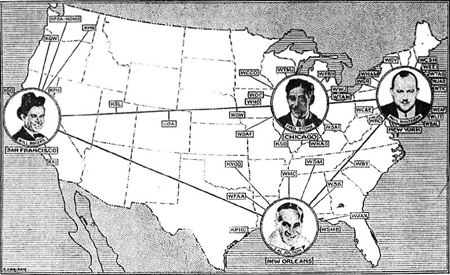
Bruce Lenthall discusses the challenges and opportunities of teaching radio history to a generation of students for whom even the metaphors we often use to think about radio's early history no longer resonate.
Read more »
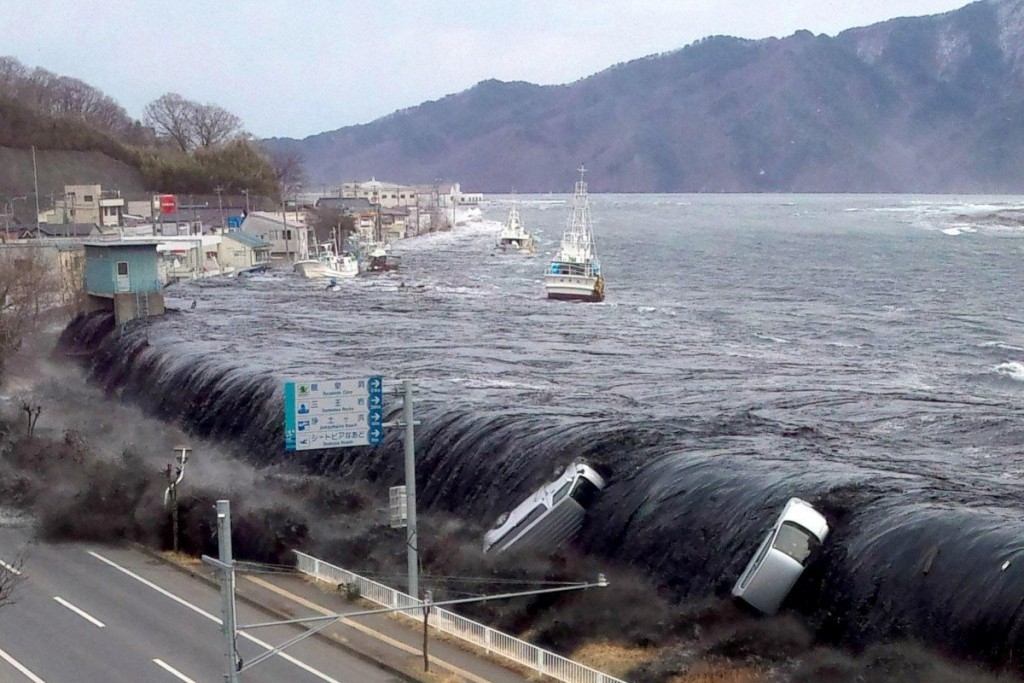
Rayna Denison and Hiroko Furukawa analyze how Japan’s fiction media producers have responded to the Great East Japan Earthquake of 2011 with a discourse of trauma, healing, and recovery in media ranging from manga to anime and film.
Read more »